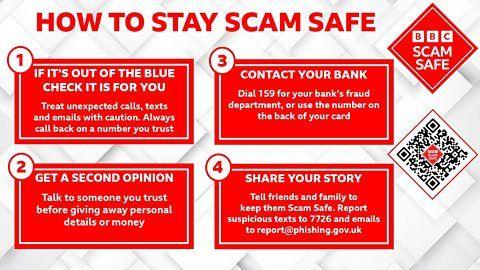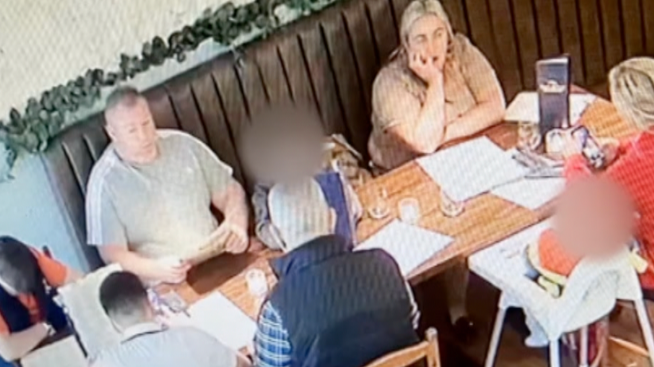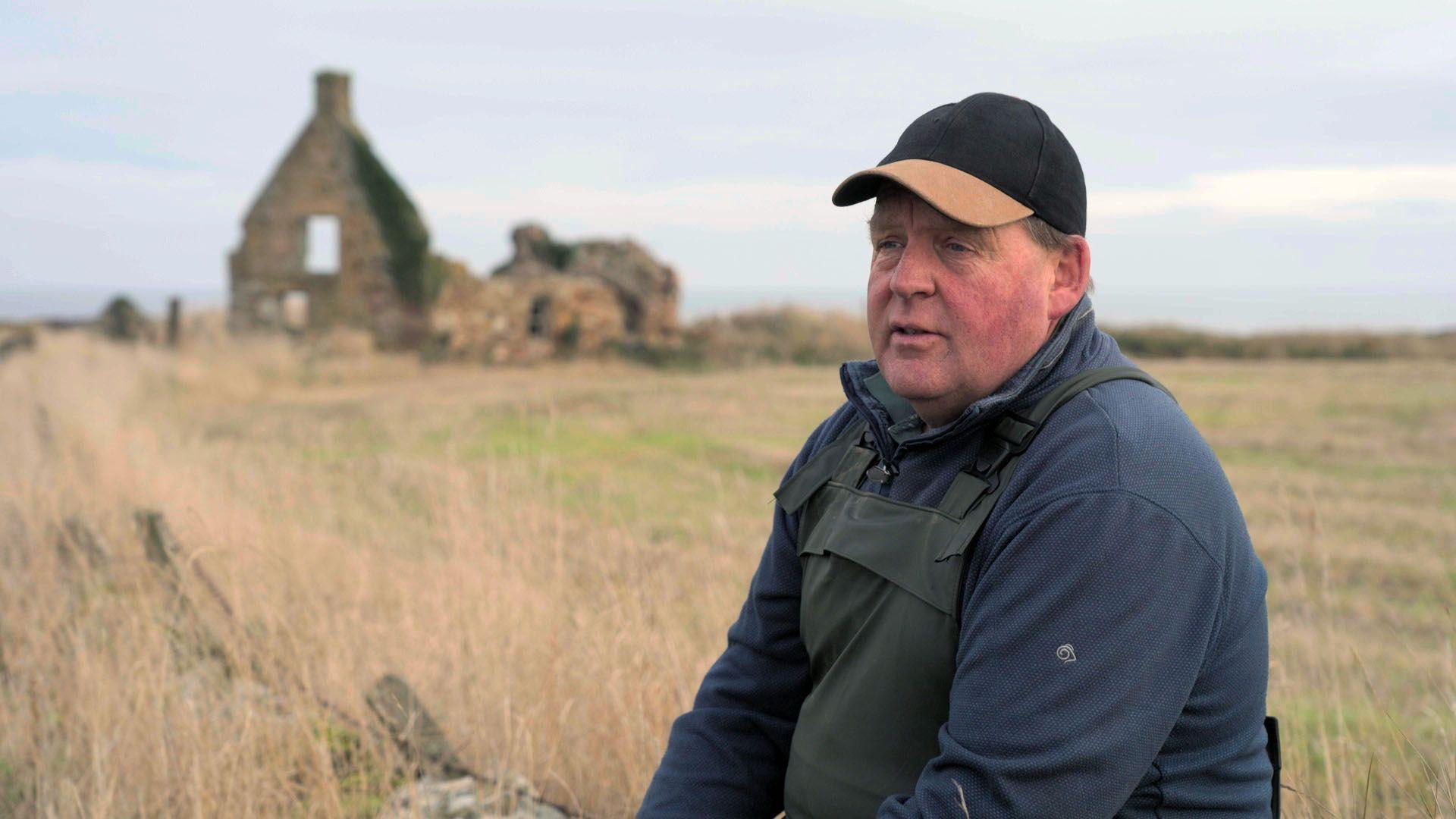Woman loses £50k in WhatsApp investment scam

Tracey Watkins says she felt "extremely stupid" when she realised she had been the victim of a scam
- Published
A woman who lost more than £50,000 in an investment scam on social media says the experience left her feeling distraught, panicked and helpless.
Tracey Watkins, 42, an accountant from Cardiff, invested money after a woman from a scam investment firm approached her via messaging app WhatsApp.
But after she was pressured to install software on her phone to access her investment, all her savings disappeared.
Citizens Advice urged people not to be rushed into signing up for anything, and to question it if returns seem too good to be true.
Scammer told bank fraud victim 'you're so thick'
- Published3 January 2024
Caravan scammers conning people out of holiday cash
- Published13 August 2024
'He told me he'd been shot and needed money but it was a lie'
- Published25 November 2024
"I was just feeling extremely stupid, sick," Ms Watkins told BBC Radio Wales Breakfast as part of BBC Scam Safe Week.
"I could just see my balance draining and draining."
The woman encouraged Ms Watkins to invest her savings in bitcoin, saying she would triple or quadruple her money.
After initially investing £3,000, she was told the value of her investment had risen to £30,000.

Tracey Watkins was contacted by a scam investment firm on WhatsApp
In order to be able to withdraw the money, she was told she needed to install the AnyDesk app on her phone to allow the firm to access and control her device remotely.
They were also able to view everything on it.
This, the firm told her, was necessary in order to talk her through how to buy bitcoin and use the Binance cryptocurrency exchange platform.
The scammer then phoned her and assured her she could not access other information on her phone, but took out two loans worth £30,000 and increased her credit card limit and her overdrafts.
"All of that disappeared out of my account along with my daughter's savings account to the sum of £50,000-odd pounds," she said.
The woman then vanished, no longer answering Ms Watkins' calls.
She contacted her bank to try and resolve the situation, but lost £52,000, a mix of savings and loans that were authorised because the application was made from her phone with her details.
The bank and the Financial Ombudsman Service, which sorts out disputes between consumers and financial services, told her that she could not recover the money from the bank because she had used AnyDesk.
They argued that she had effectively given the scammers permission to take her money.
Luke Young, head of policy at Citizens Advice said the charity frequently sees investment scams on social media, and on Facebook in particular.
"People will use profiles where they have mutual friends with others to give that sense of knowing the person, that sense of trust," he said.

The scammers also took money from a savings account for Ms Watkins' daughter
He warned that there are some tell-tale signs to spot a scam.
Words such as "loophole" or "guaranteed returns" could mean the promised gains are too good to be true.
"These are people and criminals who are determined to prey on people's vulnerability and take their money," he said.
Mr Young recommends checking the language and not feel rushed into signing up.
"Scammers will try to put pressure on you to make you give money and personal details," he said.
He also warned against clicking on links in emails and instead going to a bank's website directly.
If someone phones and tries to get your personal or financial details, he recommended hanging up and calling 159.
"Most banks are connected to that service and will be able to trace the scam and the caller but also block any payments immediately," Mr Young said.
Top tips for scam safety

If it's out of the blue, check it is for you - Treat unexpected calls, texts and emails with caution. Always call back on a number you trust
Get a second opinion - Ask someone you trust what they think
Contact your bank - Dial 159 for your bank’s fraud department, or use the number on the back of your card
Share your story - Tell friends and family to keep them Scam Safe. Report suspicious texts to 7726 and emails to report@phishing.gov.uk
Action Fraud advised that people can protect themselves against hacking by setting up two-step verification and using strong and different passwords for their social media and email accounts.
More advice on how to protect yourself against fraud can be found in the BBC's Scam Safe week resources.
What to do if you've been scammed
Anyone can be the target of a scam. Here are some steps you can take if you think you've fallen victim to scammers.
Don't panic. Check if you can get your money back, report the scam, and protect yourself from further risks.
Contact your bank immediately. If you think that you may have been scammed, it might not be too late to stop it if you act fast. They will also help you to freeze any cards or bank accounts if they’ve been compromised.
Gather all details of the scam, including who you have been in contact with, what information you have shared with them, whether you've paid any money and what method you used to do this
- Published8 May 2024

- Published24 November 2024

- Published24 November 2024
